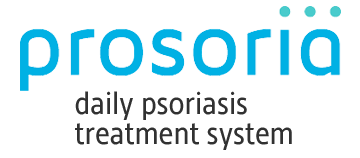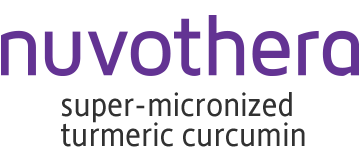What Causes Plaque Psoriasis?
15 Nov 18

Plaque psoriasis is the most common form of psoriasis. If you or a loved one are suffering from plaque psoriasis, you’re probably wondering what causes plaque psoriasis in the first place. After all, understanding the cause could help you come up with a treatment plan, but it may not be that simple. Let’s take a closer look at plaque psoriasis and its causes.
What is Plaque Psoriasis?
Plaque psoriasis is a type of psoriasis, a common skin disorder. It is mainly characterized by a sudden speed up in the normal life cycle of skin cells, which results in skin cells piling on top of each other. With plaque psoriasis, this appears as dry, raised skin lesions known as plaques. Plaque psoriasis can happen in stages but most commonly produces symptoms where the psoriatic plaques are often red, itchy, painful, and covered in a layer of silvery scales (dead skin cells). Plaques can also crack and bleed.
Plaques can appear just about anywhere on the body, but they are more often to appear on the scalp, elbows, knees, and lower back. The severity of these plaques can vary from person to person, ranging from widespread breakouts covering large areas of skin to small, dandruff-like flakes. Chronic plaque psoriasis causes a frequent cycle where the plaques will flare up for several weeks before subsiding or even going into remission for a time and then returning.
Plaque Psoriasis Causes
Scientists and researchers agree that psoriasis is an immune-mediated disease. The immune system is powerful and comprises a series of processes that eliminate invading bacteria, viruses, and other harmful microbes to protect you from diseases. In autoimmune disorders, malfunctions in the immune system and the body’s communications with the immune system cause it to mistakenly attack healthy cells, organs, and organ systems. Research helps us understand that genetics play a role, but the exact cause of plaque psoriasis (and other autoimmune disorders) still requires further study.
Psoriasis is thought to involve problems with T cells and neutrophils (a type of white blood cell). T cells normally patrol your body, neutralizing bacteria, viruses, and fungi that may pose a threat to your health. In those with psoriasis, T cells become overactive and mistakenly attack healthy skin cells as though they were healing a wound. This attack triggers increased production of skin cells as well as neutrophils. The excess neutrophils cause the redness and inflammation. This cycle continues with new skin cells getting pushed to the surface too quickly, building up and growing into the dry, scaly plaques and lesions.
Psoriasis Triggers
Plaque psoriasis can start or get worse based on specific triggers. What causes plaque psoriasis to flare up can vary from person to person, but there are some well-established triggers that could be affecting your psoriasis.
Stress
Stress is a common trigger for psoriasis, though psoriasis itself can cause stress, resulting in a bit of a vicious cycle. When your body is under attack from an infection or injury, the immune system responds by sending out chemicals to deal with the problem, causing inflammation. Research suggests the immune system has the same response to stress. For those with psoriasis, the body sends out too many of these chemicals, resulting in excess inflammation.
Injured Skin
Skin that has sustained cuts, bug bites, sunburns, vaccinations, and other injuries is potentially susceptible to psoriasis flare-ups. This is known as the Koebner phenomenon or Koebnerization. Skin suffering from the Koebner phenomenon can be treated if it’s discovered early.
Infection
As psoriasis is deeply connected to your immune activities, anything that affects your immune system can potentially lead to plaque psoriasis flare-ups. This includes everyday infections, including bronchitis, tonsillitis, earaches, and the common cold. Bronchitis is most often tied to guttate psoriasis in kids.
Certain Medications
Some medications known to interact with psoriasis include:
- Antimalarials – Quinacrine, chloroquine, and hydroxychloroquine have been found to cause psoriasis flares about three weeks after initial administration.
- Lithium – Commonly used as a treatment for psychiatric disorders, lithium has been shown to exacerbate plaque psoriasis symptoms in half of those who use it.
- Inderal – Inderal helps to regulate high blood pressure, but it may cause flare-ups in 25 to 30 percent of those with psoriasis who take it.
- Indomethacin – This NSAID is a common treatment for arthritis, but it can potentially worsen symptoms of psoriasis.
If you have psoriasis and find that your medication is making your symptoms worse, consult your doctor for substitutions and alternatives.
Smoking
Studies have found that psoriasis poses a much higher risk in smokers. Smoking may double the chances of developing psoriasis with increased chances directly related to the number of cigarettes smoked per day. How cigarettes actually affect psoriasis still requires study considering the thousands of harmful ingredients in cigarettes, but nicotine may play a major role as it may alter the immune system and skin cell growth.
While we may not know exactly what causes plaque psoriasis, we do know that there are numerous treatments available that can help to regulate symptoms, including phototherapy, topical ointments and treatments, and oral and injected medication.
If you have any more questions about what causes plaque psoriasis and how Prosoria can help manage your condition, contact us today!
Sources:
- https://www.psoriasis.org/about-psoriasis/types/plaque
- https://www.mayoclinic.org/diseases-conditions/psoriasis/symptoms-causes/syc-20355840
- https://www.livescience.com/26579-immune-system.html
- https://www.psoriasis.org/life-with-psoriasis/stress
- http://www.papaa.org/articles/koebners-phenomenon
- https://www.psoriasis.org/about-psoriasis/causes
- https://www.psoriasis.org/advance/how-cigarettes-and-alcohol-affect-psoriasis
- https://www.psoriasis.org/advance/how-cigarettes-and-alcohol-affect-psoriasis

